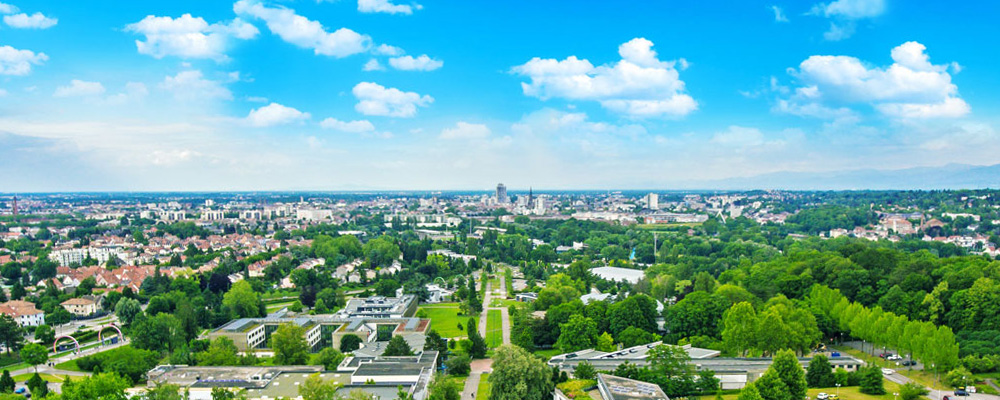Accueil » WP4: Households' beliefs and hierarchy of expectations (...)

European households are being encouraged to reduce their energy consumption and make better use of renewable energies, with different incentive and pressure though. In the ASIMUTE project, we are looking for ways for houselholds to reduce energy consumption without losing physical and psychological comfort. In that aim, this fourth work paper (WP) of the project focuses on european households’ expectations regarding intelligent self-consumption devices and their deployment (such as photovoltaic technologies), and investigates elements that contribute to their satisfaction and engagement. This WP will be conducted from october 2023 to march 2026 during the whole ASIMUTE project, and include different consecutive objectives which are described below.
Self-consumption devices such as photovoltaics (PV) represent a disruption compared to the traditional energy production and distribution systems, allowing households to produce their own energy. Governments encouraging their deployment and companies selling self-consumption devices often outline energy independence and money savings, as well as the possibility to contribute to the energy transition or the creation of new « green » jobs. On their side, households have a number of expectations when they choose to embrace the energy transition relying on PV, which deserve to be highlighted and understood: financial savings, contributing to sustainability, performance, possibility to sell their self-produced electricity, etc… These satisfaction contributors might be different depending on the context of deployment which can be more or less coercive within European countries. Moreover, considering self-consumption devices are deployed in a « green » context, it seems important that such devices are not subject to planned obsolescence. On the contrary, continuous improvement possibilities (Ho-Dac, Kumar & Slotegraaf, 2020; Wiegand & Imschloss, 2021) relying on advanced technologies may contribute to households’ satisfaction and engagement.
This work package first proposes to identify houselholds’ expectations regarding PV, and their respective contributions to their satisfaction in two different contexts of deployment. Then, this WP aims to model the influence of households expectations in terms of PV continuous improvement, on their engagement with intelligent self-consumption. Finally, the WP aims to examine the role of consumer beliefs about the efficacy and benefits of self-consumption devices and relate these beliefs to their engagement. Since self-consumption devices present relatively new technologies, consumers likely have varying beliefs about what their adoption can achieve (in comparison to not using self-consumption devices). These beliefs about CO2 reductions, monetary savings and others might influence the consumers’ intentions to adopt them in the future. The beliefs might also vary across different self-consumption devices, such as battery storage, energy management systems etc.)
First, in the aim to identify households expectations regarding PV technologies, forty exploratory face-to interviews will be conducted with French and German households owning or intending to own PV. Then, following a « tetraclass methodology » (Llosa, 1997 ; Julienne & Llosa, 2021), these interviews will be completed by a quantitative online survey on large panels of French and German consumers equipped with PV, so as to evaluate their respective contribution to household satisfaction. A comparison of the structure of attributes contributing to households’ satisfaction will be undertaken, when the government dictate the installation of PV or not.
The second part of the package is comprised of an in-depth literature review on continuous improvement, adopting a marketing perspective. This state of art on consumer continuous improvement expectations will permit to identify underlying psychological mechanisms and potential moderators. Then, an online quantitative survey on large French and German panels will be conducted to measure the influence of continuous improvement self-consumption devices possibilities on households engagement, which should provide recommendations for companies for the design of technologies and for their communication campaigns.
The third part of the work package aims to examine the role of consumer beliefs about the efficacy and benefits of self-consumption devices and relate these beliefs to their engagement. This part will therefore conduct a quantitative survey among households that assesses both beliefs and adoption intention and subsequently model their relationships.
This WP complements mainly two other packages of the ASIMUTE project. First, by comparing the elements involved in PV households’ satisfaction in two different contexts of deployment, we aim to identify psychological compensation mechanisms when households’ self-determination is threatened. In doing so, this WP supplements the third WP which studies another type of compensation (compensatory consumption) in a context of vulnerability, when quality of life is threatened. Second, our investigations extend WP 6 devoted to a comparison of the legal frameworks for self-consumption in Europe, by investigating implications of different legal contexts of deployment in terms of households’ expectations regarding self-consumption technologies.
Both the qualitative and quantitative studies of this WP will be jointly developed and carried out by UHA and KIT-DFIU. Some analysis will require a comparative approach allowing to identify differences between countries, while other will rely on aggregating data, depending on the objective of the study.

Université de Haute-Alsace
2 Rue des Frères Lumière,
68100 Mulhouse
Copyright © 2024-2025 IRIMAS Institute | Université de Haute-Alsace